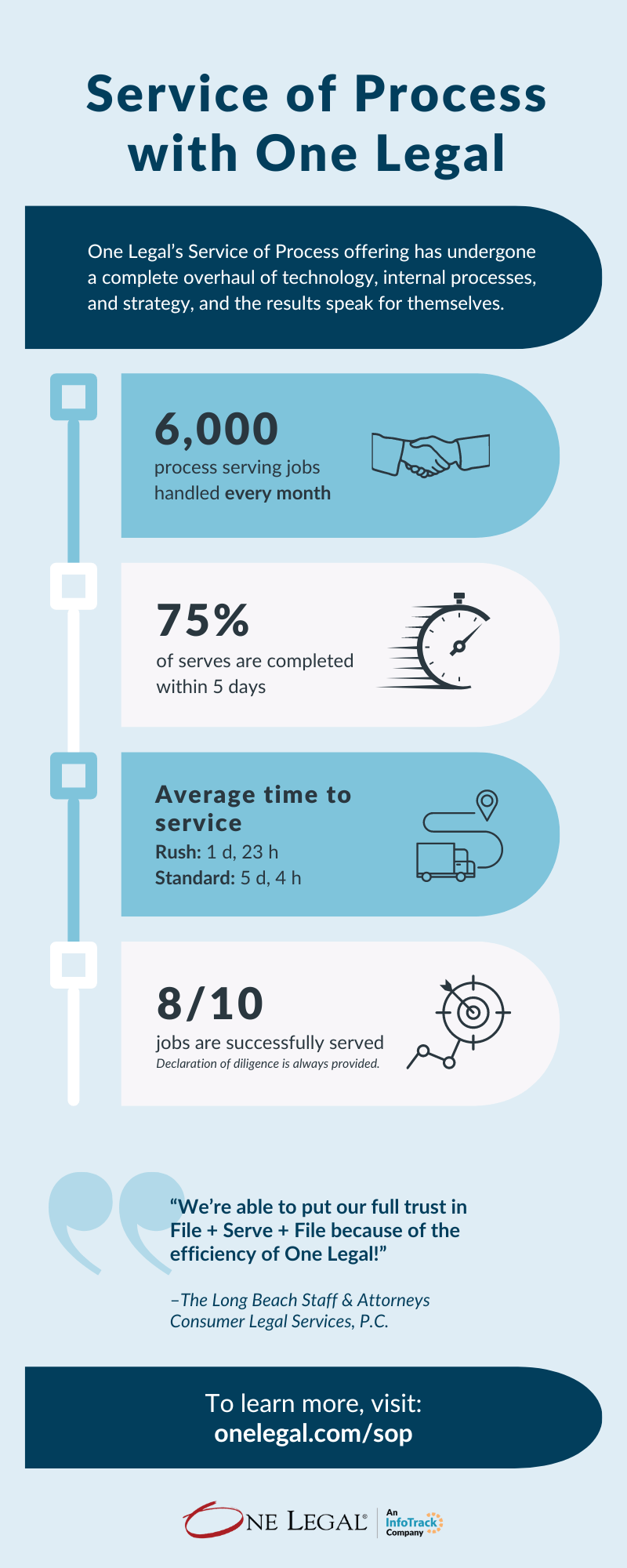Exactly How Process Serving Improves Lawful File Handling and Distribution
Exactly How Process Serving Improves Lawful File Handling and Distribution
Blog Article
Process Offering: A Vital Action In Lawful Record Delivery
Process offering plays an important function in the legal structure, ensuring that all parties are appropriately informed of pending lawful activities. Numerous kinds of lawful papers are offered, each with its very own effects and demands. Recognizing the nuances of these difficulties is necessary, as they can have profound ramifications for the honesty of lawful procedures.
Value of Process Offering
Process serving is a crucial component of the legal system, acting as the formal methods through which individuals are notified of lawful actions including them. This treatment is vital as it makes certain that all parties obtain proper notice, thereby promoting the concepts of due process and fair representation in legal process. Without effective process serving, individuals might stay uninformed of lawsuits, possibly resulting in judgments made in their absence and significant repercussions.
The significance of process serving extends past simple notification; it additionally contributes to the integrity and performance of the judicial system. Correctly served files permit timely reactions from the celebrations included, helping with the development of cases with the courts. Furthermore, adherence to legal requirements surrounding process offering reduces the opportunities of disputes pertaining to service, consequently reducing hold-ups in legal procedures.
Moreover, procedure offering acts as a vital secure against unimportant claims. By making sure that accuseds are aware of insurance claims versus them, it aids to prevent baseless activities and encourages responsible lawful practices. Inevitably, the duty of process offering is fundamental in maintaining the rule of legislation and guaranteeing that justice comes to all individuals associated with lawful matters.
Types of Lawful Files Offered
Lawful files served in the context of procedure serving incorporate a vast array of products important for various sorts of lawsuit. Process Serving. These papers can include summons, subpoenas, issues, and writs, each serving a distinct purpose in the legal procedure
A summons is typically provided to notify an offender of a legal action and force their look in court. Problems, on the other hand, detail the plaintiff's situation and the relief sought. Subpoenas are essential for compelling witnesses to indicate or produce proof, thus playing an important duty in the discovery process. Writs can include different types of court orders, such as writs of garnishment or eviction, which guide particular actions to be taken.
In enhancement to these main files, procedure servers may likewise provide activities, notices, or sworn statements, depending upon the needs of the case. Each type of paper served is controlled by specific lawful guidelines and procedures, highlighting the value of timely and accurate service. Eventually, the reliable distribution of these lawful files is important in ensuring that all events are notified which the judicial process can continue immediately.
Difficulties Faced by Refine Web Servers
Countless difficulties face procedure servers in the execution of their tasks, frequently complicating an already detailed lawful landscape. One considerable difficulty is situating people who are incredibly elusive or deliberately preventing solution. This typically calls for comprehensive investigative abilities and sources, as procedure servers must navigate false addresses and limited info.
Moreover, process-server often come across aggressive scenarios. Serving records can prompt protective reactions from recipients, bring about battles that jeopardize the web server's security. Lawful securities for procedure web servers differ by jurisdiction, adding one more layer of complexity to their job.
Time read more constraints likewise position an important challenge. Numerous lawful files have stringent due dates, and failing to offer them in a timely manner can cause severe legal repercussions for clients. This pressure can be worsened by the requirement to comply with specific guidelines controling solution techniques.

Refine Offering Techniques
Exactly how do process-server effectively ensure that legal records reach their desired receivers? The methods used in procedure serving are important for the effective delivery of these files. One of the most typical method is personal solution, where the procedure server hands the files straight to the recipient. This approach is preferred for its integrity, as it provides a clear record of distribution.
In enhancement to personal service, alternate approaches such as substituted service news can be made use of. This entails supplying documents to an individual of appropriate age and discernment at the recipient's home or company, guaranteeing that the papers get to the designated party indirectly - Process Serving. Another approach is service by mail, which may be allowed in specific territories, permitting papers to be sent out via accredited or signed up mail to provide evidence of distribution
Last but not least, electronic solution is gaining traction, specifically in circumstances where conventional techniques may prove tough. This can include emailing files or utilizing court-approved electronic declaring systems. Each approach has its own collection of regulations and laws, making it crucial for procedure servers to be knowledgeable about the lawful requirements in their jurisdiction to make sure compliance.
Legal Consequences of Improper Service
When process offering is not executed properly, substantial legal consequences can occur, undermining the validity of the whole lawful case. Improper service can result in a dismissal of the situation, as the court might identify that the offender was not adequately notified of the lawsuit against them. Process Serving. This dismissal can take place even if the plaintiff has a strong instance, properly nullifying their efforts and sources purchased the litigation procedure
In addition, improper service may lead to hold-ups, creating further problems in the legal timeline. If an offender is not appropriately offered, they may not recognize their responsibility to respond, leading to defaults that complicate the resolution of the instance. In some jurisdictions, the complainant might be required to re-initiate the service process, incurring more information added expenses and expanding the timeline of the instance.
Additionally, duplicated failings in service can mirror inadequately on the complainant's legal guidance, possibly leading to expert effects or permissions. Ensuring proper process offering is not only a procedural demand however a vital component that maintains the stability of the lawful system and shields the civil liberties of all events included.

Conclusion
To conclude, process serving plays an essential duty in the legal system by ensuring that all parties obtain correct notification of lawsuits. The numerous types of papers served, paired with the obstacles encountered by process-server, highlight the complexities fundamental in this career. Employing ideal methods of solution is vital to support due process, and any kind of failing to comply with lawful standards can result in considerable consequences, weakening the integrity of judicial procedures.
Refine serving plays an essential function in the legal structure, guaranteeing that all events are properly notified of pending legal actions.Refine offering is a vital part of the lawful system, serving as the formal means by which individuals are informed of legal actions entailing them. In addition, adherence to lawful demands surrounding procedure serving lessens the possibilities of disagreements concerning service, thus lowering delays in legal proceedings.
When process serving is not implemented appropriately, significant legal consequences can arise, weakening the validity of the entire legal case.In verdict, process offering plays an indispensable function in the lawful system by making sure that all events obtain appropriate alert of lawful activities.
Report this page